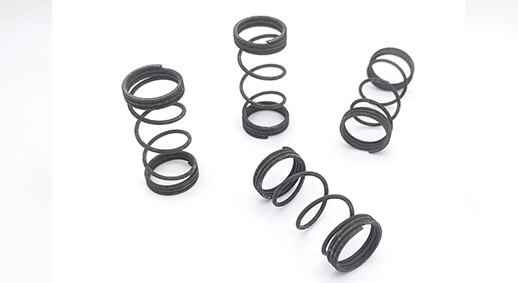Get unique, complex parts easily. No matter your requirements, Chaoyi Spring creates hard-to-produce coil springs and wire forms.
Let us help you create the custom wire form you need, from S-hooks and J-hooks to utility hooks and more.
We work closely with customers across a wide range of industries, helping them design and manufacture made-to-order parts.
Why choose Chaoyi Spring? We prioritize customer-focused collaboration, modern equipment and the latest technology to make your parts per print.
Find the information and guidance you need, from measuring a spring to learning about materials, placing an order and much more.
We often take them for granted, but compression springs are everywhere we look. From the simple act of opening a door to the intricate workings of a car engine, these


We often take them for granted, but compression springs are everywhere we look. From the simple act of opening a door to the intricate workings of a car engine, these coiled wonders silently work to make our lives easier. Compression springs, characterized by their ability to resist compression forces, are essential components in a multitude of applications, embodying a fascinating blend of science and everyday practicality.

At their core, compression springs are marvels of engineering. Made primarily from spring steel, these coiled wonders store and release mechanical energy, enabling a wide range of functionalities. When a compression spring is compressed, it stores energy, resisting the applied force. Upon release, the stored energy is released, causing the spring to return to its original shape. This simple yet powerful principle underpins the spring's effectiveness in various applications.
The rate, or spring constant, is a crucial aspect of a compression spring's behavior. It quantifies the relationship between the applied force and the amount of compression. A higher spring rate indicates a stiffer spring, requiring more force to compress, while a lower rate signifies a softer spring. The choice of spring rate is critical in designing a spring for a specific application, as it directly influences the force required to achieve a desired compression.
Compression springs can be further classified based on their end configurations, which determine how they are attached to other components. Some common end configurations include plain ends, closed ends, and ground ends. Each configuration offers unique benefits, making them suitable for different applications. For example, plain ends are ideal for simple setups, while closed ends provide greater strength and durability.
Compression springs are ubiquitous in our daily lives, often playing unassuming but essential roles. Take, for instance, the humble ballpoint pen. A small compression spring within the pen mechanism ensures a smooth, consistent ink flow. In washing machines, compression springs are responsible for maintaining a balanced load, preventing excessive vibration during the wash cycle. And those ubiquitous door closers that gently guide doors shut? You guessed it - compression springs are the silent heroes behind their operation.
Beyond our immediate surroundings, compression springs find their way into a vast array of industries and applications. They are essential components in automobiles, providing suspension, clutch operation, and valve actuation. In industrial settings, compression springs power everything from heavy-duty machinery to delicate tools. They are also crucial in medical devices, ensuring smooth and precise operation of critical components.
Compression springs have a rich history, dating back to the early days of mechanical engineering. Early springs were often made from materials like bronze and were typically simpler in design. The advent of spring steel revolutionized spring technology, allowing for the production of stronger, more durable springs capable of handling heavier loads.
The evolution of spring manufacturing techniques, including coiling and heat treatment, has further refined the production of compression springs. Today, advanced manufacturing processes allow for the production of springs with intricate geometries, precise dimensions, and high-performance capabilities.
Compression springs continue to evolve, fueled by the relentless pursuit of innovation and improved performance. Advanced materials, such as composites and shape memory alloys, are being explored for their unique properties, promising even greater strength, resilience, and functionality. Moreover, the integration of smart technologies, such as sensors and actuators, is opening up new possibilities for compression springs, enabling them to monitor their own performance and respond to changes in their environment.
As technology continues to advance, we can expect to see compression springs playing even more pivotal roles in our lives. These seemingly simple yet incredibly versatile components will continue to drive innovation and improve our quality of life.
From the mundane to the extraordinary, compression springs quietly work to make our world a better place. Their seemingly simple design belies their profound impact on countless industries and aspects of our daily lives. As we continue to innovate and explore new frontiers, compression springs are poised to remain indispensable components in shaping the future.
Browse some of the custom wire forms and springs that we manufacture. Don’t see what you need? We specialize in made-to-order products that meet your application requirements.
Visit Our GalleryNeed a custom wire form or coil spring? We make it work. Fill out the contact form and a representative will respond within 1 business day. If you have a PDF or CAD file, you can submit to request a quote.